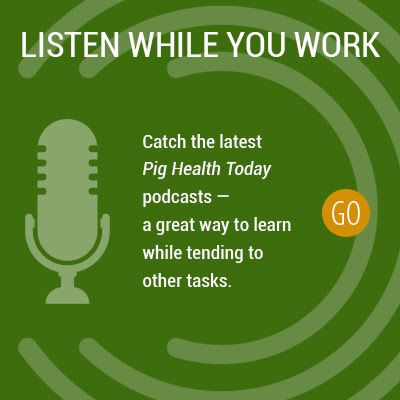Tyson VP: ‘Antibiotic issue is far from black and white’
Producer and consumer choice are equally important when it comes to producing quality pork products — and it’s important not to put limits on either of them, according to Kent Harrison, vice president of marketing and premium programs, Fresh Meats Team at Tyson Foods.
For example, judicious and responsible use of antibiotics is often critical for maintaining good animal welfare, as well as product quality and supply, he noted. “But there also are consumers looking for a product [from animals raised] with no antibiotics ever, and we (Tyson Foods) strive to provide that product for the market as well.”
Tyson Foods is the world’s largest producer of no-antibiotics-ever chicken and, more recently, introduced beef and pork under the Open Prairie Natural Meats brand, which is produced from cattle and pigs raised without antibiotics. The “natural” tag in the Open Prairie Natural Pork brand primarily means it is minimally processed with no artificial ingredients, according to Tyson Foods.
“But the antibiotic issue is far from black and white,” Harrison told Pig Health Today, adding that it’s important for suppliers not to compromise animal welfare in the interest of marketing. Backup channels are needed in case animals need to be treated for disease.
“It’s critical to recognize if an animal does get sick, we want to treat it with [a program employing] responsible antibiotic use so that animal doesn’t suffer and can re-enter the food chain,” he added.
Third-party verification
Third-party audits play a significant role with Tyson Foods and its farmer suppliers. The first step toward this commitment occurred in 2012 when the company launched its FarmCheck auditing program. Through this program, third-party auditors check the livestock and poultry farms that supply animals to Tyson for such things as proper animal handling, responsible treatment and worker training. In 2016, the company adopted the pork industry’s Common Industry Audit program to uniformly measure animal care and well-being among its hog suppliers.
Maintaining third-party verification is important on the antibiotic side as well. Harrison points to the veterinarian’s role as a “professional third-party reference who decides whether or not antibiotics should be used in a judicious and responsible way.” That’s a message he and the Fresh Meats Team share with Tyson’s foodservice customers.
“It’s important to communicate that we are the best stewards of the animals that turn into products that end up on the plates,” he added. “We talk openly and honestly with customers and try to communicate effectively with them about responsible antibiotic use.”
A secondary communication goal is to provide their foodservice customers with knowledge they can use with customers in their restaurants. With regard to antibiotics, Tyson’s Fresh Meats Team addresses such topics as what goes on at the farm; when, why and where antibiotics are used and where they are not.
His advice for pork producers and veterinarians is to embrace transparency and open communication. “The pork industry is populated with and run by fantastic people,” Harrison emphasized. “They try to do the right things for the right reasons, and when we provide that communication to the consumer, the story rings loud and clear.”
Posted on December 19, 2018













